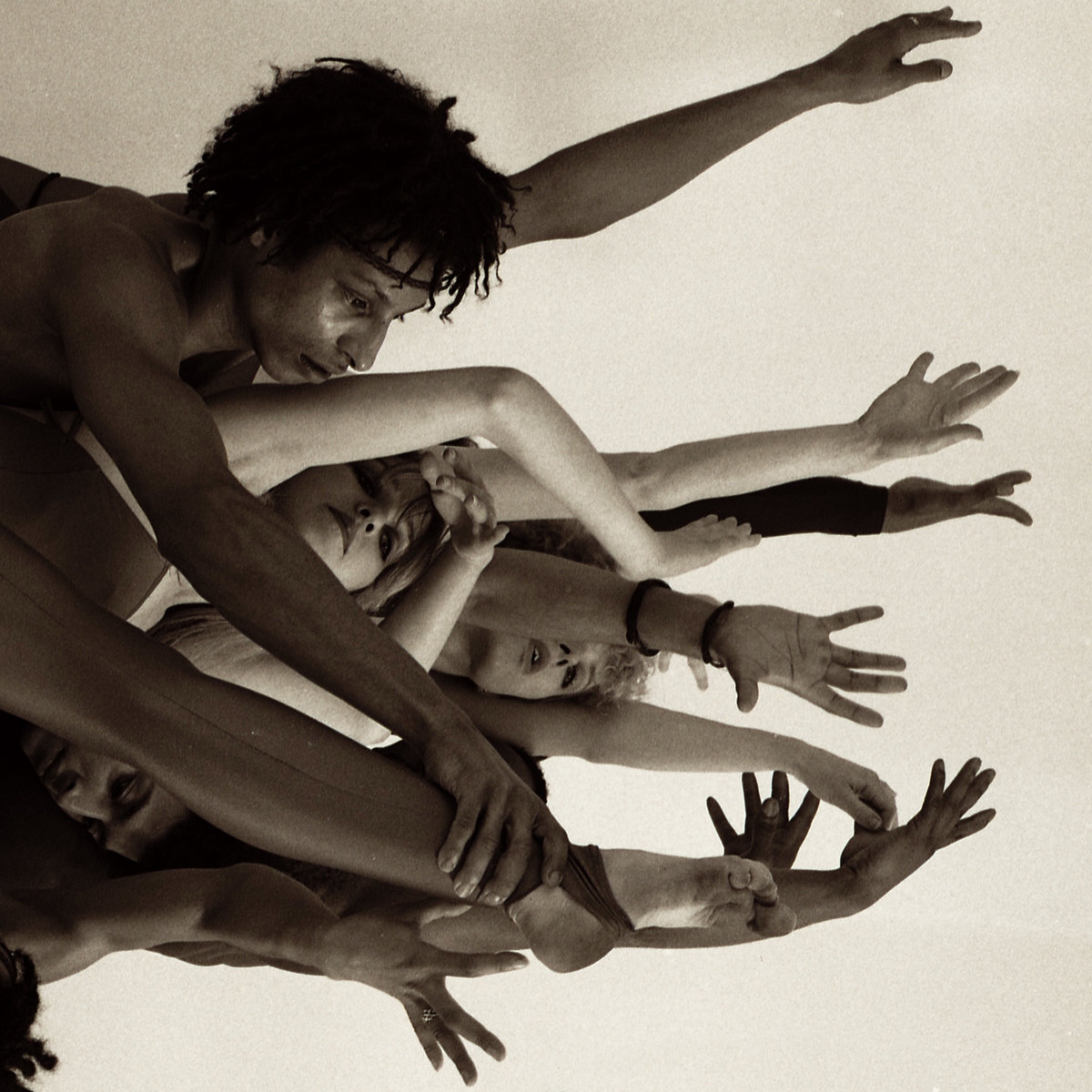Raven’s Jeté is a short, snappy and high-voltage EP which explores the healing properties of movement and dance. Here we talk both composition and choreography.
With the renovation of Dreamland, Margate has undergone a few changes recently. How has this affected the local scene?
The new energy here is brilliant. I’d say that the Turner was probably the start of things changing.
Because it’s not nearly as expensive as London, there are spaces and opportunities for people to explore, grow and experiment creatively, it means that things can start to happen. There’s always stuff going on, both music and art. For a small town, lots is happening. It sometimes feels like a little extension of London.
What was the biggest risk you took in the studio for Jeté?
On a technical level, it was using a process where I would have to commit to the sound of a track as I was making it.
Normally when you record music you multitrack, which means that each individual musical part you have separately, so at any stage you can change the balance. For half of Jeté I was working mainly with just a stereo file.
I’ve got this drum synth called a Vermona DRM 1, and you can do a cool thing where you insert effects on each drum voice, and it mixes it back into the stereo out. I would just improvise one longer take, then edit the track down from that.
Really fun and instant, but you can’t go back and change anything.
Jeté concerns itself with movement and dance. Are there any recent, or not-so recent, choreographers you can recommend?
Kiani Del Valle, Damian Jalet, Holly Blakey.
There is a clear link between movement and wellbeing — something Jeté explores. This is evidenced in things like placebos and the 'walk it off' approach to depression. How come this link is so often brushed off or denied?
I completely agree. If you haven’t already, you need to watch the film ‘Mr. Gaga’. It’s about this incredible dancer/choreographer Ohad Naharin, who invented his own style of movement/self expression that anyone can do. Even though it doesn’t explicitly say this in the film, it’s clear to me that he is exploring healing through movement.
Often in the west we don’t take a holistic approach to anything, but it’s pretty obvious that our minds and bodies are connected.
Movement evolved before language, so it completely makes sense that it can be used to unlock the mind.
What initially piqued your interest in dance/choreography? What inspired its incorporation into Jeté?
Initially my mother’s interest started me off. Then, more recently, working with with Kiani Del Valle — she’s incredible.
Music and dance are intrinsically linked. This year has been filled with lots of both, so it was a natural connection to make.
Your press release lists some interesting collaborations (with the likes of Mica Levi). What is the nature of some of these? Where can we find them?
Even though nowadays I spend most of my time producing in the studio, I’m actually first and foremost a violinist. I’ve played with Mica a bunch over the years, she’s a friend. I think you can find something on Boiler Room.
One for the gear-heads; what do you use to compose your music on?
I try and have as many different approaches as possible. I’m a believer in systems, or frameworks within which to compose. Often I do this with equipment, or studio techniques.
The last couple of years I’ve been using a prototype synthesiser called an FSOL-DIGITANA SX1. It’s a collaboration between Brian from FSOL (Future Sound of London) and Steve, who runs Digitana. They used to make breakout boxes for EMS stuff, matrixes for patching 2 VCS3’s together, etc. They made this add-on which gave you another 2 VCOS. They sounded so good that it’s now a standalone synth with an analog delay built in. It’s really cool, sounds amazing! I made a whole record with it that’s coming out next year.
I’m really into all the new gear that’s coming out, I love the OB6, sub37, Octatrack, Strymon pedals. The modern stuff which has midi over USB is so handy. To get all that functionality so easily is just amazing, I think.
So many times I’ve nearly gone down the Eurorack route. But somehow I’ve just never found ones that really blow me away — plus, I think I’d forever be changing modules. There is something about the instrument-like quality of a standalone synth that I’m into.
I use Ableton and I have a TEAC 38, recently been using a Charter Oak Peq1+Shadow Hills Dual Vandergraph for tracking.
It could be said there are sentimental reasons behind the selection of the vocal sample in 'U Should Have Told Me' (your father's old folk record). What generally informs your selection of samples?
Normally I never use samples, I usually just make my own. I set aside time to create my own library of sounds which I can use.
I’ll choose a sound purely if I think it's going to add the right texture or emotion to the track, there isn’t really much thought behind it.
This is one of the few times I had actually sampled something that wasn’t my own.
Are there any artists in your scene, local or otherwise, you'd like to shout out?
Lee Gamble, Oliver Coates, Lanark Artefax, Special Request, Karyyn, Kirkis.
Injecting danceable music with substance still sometimes results in being labelled as 'IDM'. What is 'intelligence' in music? Can music be an intellectual experience?
For sure, music can be intellectual, it can be anything you want it be. I’m just concerned whether it’s good or not, which I think has more to do with sincerity than anything else.
Jeté is available to purchase and stream here.
Interview conducted by Andrew O’Keefe


